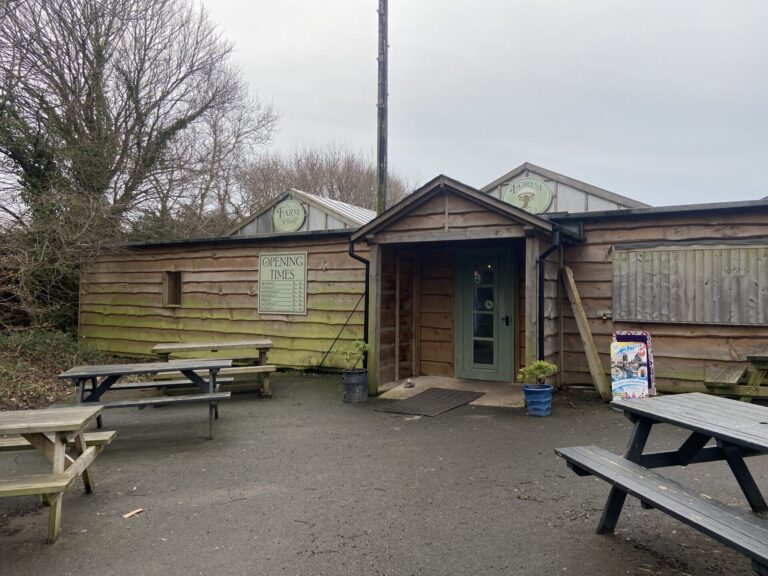
Forest Fungi is one of the rare places in Devon where gourmet mushrooms are organically grown and readily available to buy and eat. The owner Scott Marshall along with his fiancé Becca Bond have carved out their own little niche in Dawlish Warren’s seaside town, thriving all year round as a culinary hotspot for all fungi enthusiasts.
Scott shares his experiences of how he opened Forest Fungi out of an abandoned greenhouse, how he’s found success in the various arms of his business, and the challenges he’s faced maintaining the farm shop.
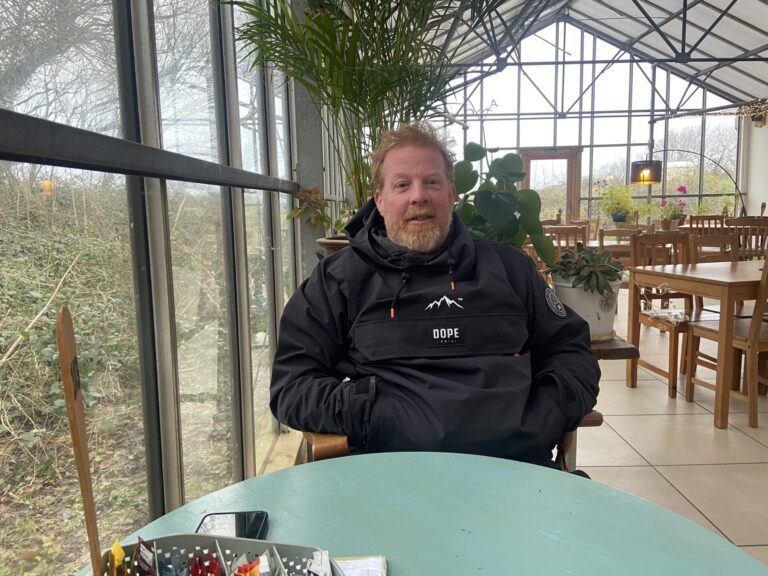
How have your interests in wild mushrooms led you to opening Forest Fungi in 2013?
My interest started with the medicinal side of fungi. I was starting to get interested in foraging wild mushrooms as there was a lot of beautiful woodland where we are near Haldon and Exeter. Then I was diagnosed with testicular cancer and had a very rough time with chemo.
Through further research, I found out shiitake mushrooms, one of our most popular mushrooms we grow, were a great way of rebuilding immunity. However, the only place you could really get them was from a supermarket. It happened that someone had grown shiitake at home on a log, and that level of fresh shiitake was something completely different to what I was buying. Then I became interested in growing it to find out more and supply myself with it. It became obvious that no one else in the UK was doing that.
I was working for DFS as a senior manager, starting up in Peterborough, Cambridgeshire, London, Bristol, then I ended up in Plymouth. The money was very good, but once the company got taken over, the atmosphere changed. Once I had this diagnosis, I realised that I had to do what I wanted in life rather than chase a comfortable life. That’s where the idea for the mushroom farm formed.
I quit 12 months after, found this place in 2012, and it was pretty much derelict. We did six months’ worth of renovations just to get it to be useable. Then we slowly built it up from there and opened in July 2013.
 What is business like for Forest Fungi in Dawlish Warren?
What is business like for Forest Fungi in Dawlish Warren?
It was painfully seasonal when we first started. We had a good first two months, then when the campsite next door closed, our turnover dropped 75%. I thought the seasonality of this area was going to be own downfall for the first few years. As we got more local traction, the off season got busier. More recently, we don’t see a seasonal drop off, as most businesses in Dawlish Warren close or downsize, but I think we are unique to the area.
The other site is busy non-stop. We’re constantly chasing our tail and reinvesting in more space to continue with that exploding demand. All our business used to be cold calling and knocking on doors, whereas people ring us now.
I’d like to think we had something to do with growing the local public awareness of mushrooms. So many people thought I was nuts going into it 13 years ago, whereas people are getting feeds on their social media about the medicinal properties of Lion’s Mane, which had nothing to do with us. We were early, but at least it was relevant.
 How have you promoted Forest Fungi by attending festivals or engaging in other local events?
How have you promoted Forest Fungi by attending festivals or engaging in other local events?
We offer one or two tours around our site every Saturday. People take a punnet around the growing rooms and pick their own mushrooms, or they take a grow kit home and grow it themselves.
We’ve been on and off doing stalls at food festivals such as Dart Food Festival and the Eat Food Festival in Totnes. but they’ve done phenomenally. We supply for 15-20 restaurants in Exeter, including a few artisans on Magdalen Road, but Totnes’ take-up is explosive in terms of independent support whereas Exeter is more high-street centric. Darts Farm is our biggest customer by a long way, possibly getting through more than 100 kilograms of gourmet mushrooms a week.
We work with a lot of MasterChef contestants as well. A lot of the mushrooms that have been on that show tended to be ours. We were supplying Anton Piotrowski when he won his first Michelin star at the Treby Arms. He would chop king oyster mushrooms super fine to use that as a risotto base rather than rice. There was no protein or carbs, and that’s part of what the Michelin star inspector had when he came around. He noted that was one of the best dishes he’d ever had. Stuff like that really helps.
 What have been the challenges of maintaining Forest Fungi?
What have been the challenges of maintaining Forest Fungi?
The biggest challenge is the cash and investment required to get this site up to spec. The level of borrowing we’ve needed to weather COVID and the quieter times at the beginning is still hampering our growth. In the last phase, I also remortgaged my property. Ironically, the mortgage on this site is very low, but we’re finding it impossible as a business to get a mortgage for this site.
What are your future goals for this year?
For the first time, we have a reliable way of predicting increases in volume, so we know what we’re going to do this year. We’re at a point where we don’t have to invest in anything, unlike most years driven by need rather than a desire to develop or fix. Consolidating those debts will definitely be a priority this year. Once we’ve done that, the business will be able to earn back some money.
We’re also going to move more towards being a deli rather than a farm shop, since people tend to expect something different from what we’re offering. The commercial kitchen produces a lot more cakes, treats, pies and pasties, whereas there’s no meat or veg, so it’ll be a good idea for us to cut out the middleman.
 Have you got any advice for people wanting to open their own farm shop?
Have you got any advice for people wanting to open their own farm shop?
My gut instinct is to say ‘don’t’. But if you do, start with a bit at a time. If anything, start off with hospitality, and make sure someone can best showcase the product to help it sell. Push that cost benefit of being local and cheaper than the supermarket onto the consumer to give them a reason to come to you.
Don’t underestimate the amount of customers that still buy from supermarkets. In our first two years, we found that people would specifically come in asking for stuff like cauliflowers because the local Sainsbury’s had run out. We offered everything as a result, but the spend and waste on fresh produce was horrific. We gave up on fruit and veg after that.
The successful farm shops I work with are authentic. They’re part of a farming operation or have a reason to go direct to market. We’ve seen a fair few farm shops that are essentially convenience stores with local produce mixed in with non-local produce. Authenticity of what you’re farming, if not a complete, unadulterated dedication to the local food chain to be as authentic as possible, is important.



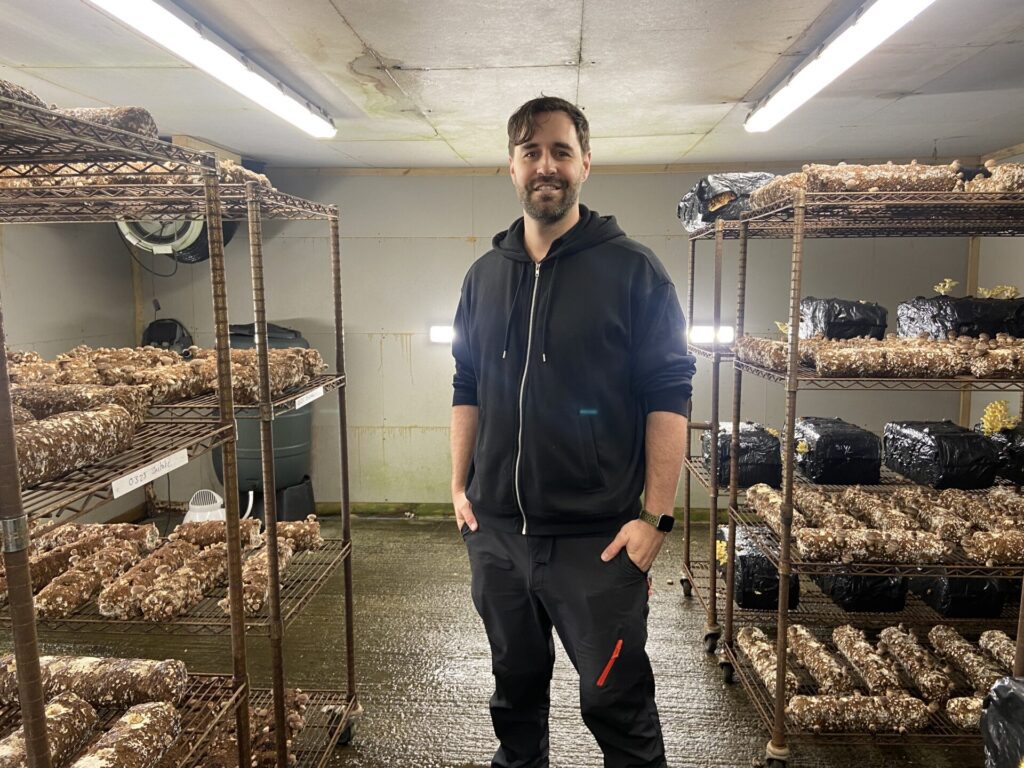 What is business like for Forest Fungi in Dawlish Warren?
What is business like for Forest Fungi in Dawlish Warren?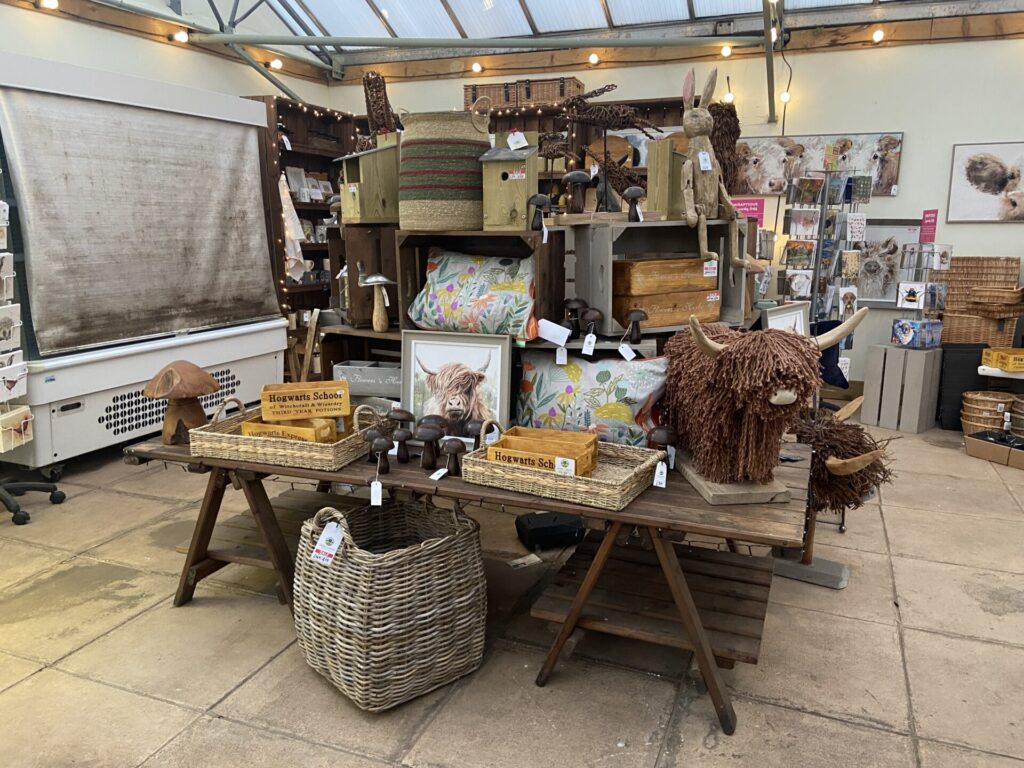
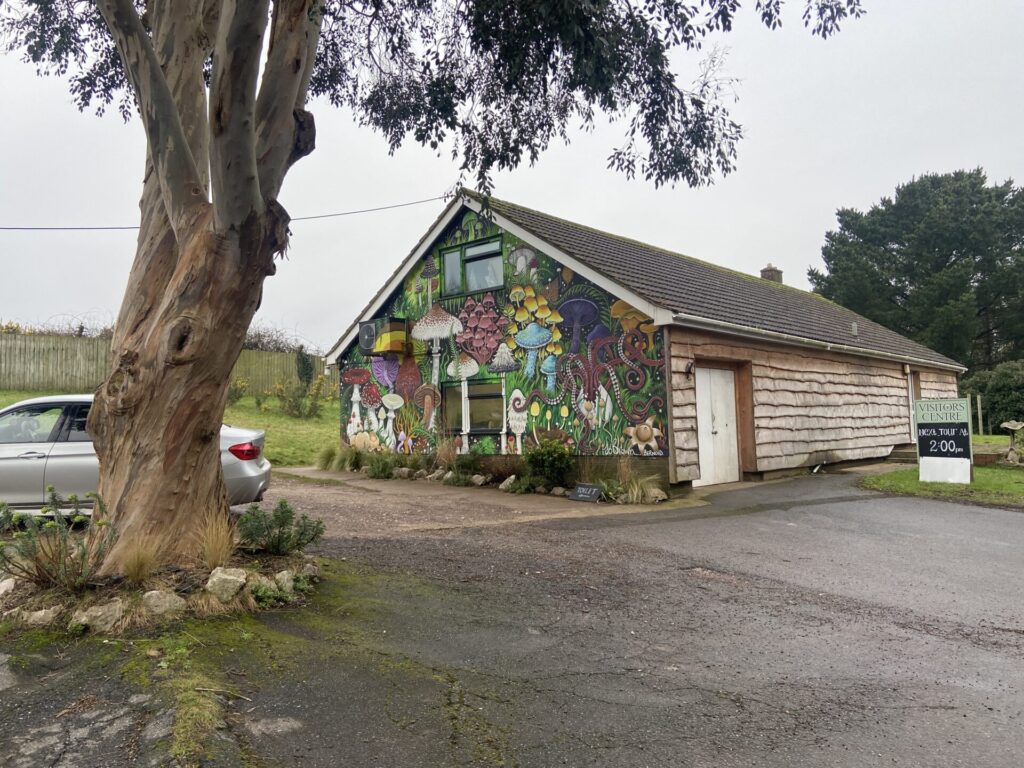 Have you got any advice for people wanting to open their own farm shop?
Have you got any advice for people wanting to open their own farm shop?